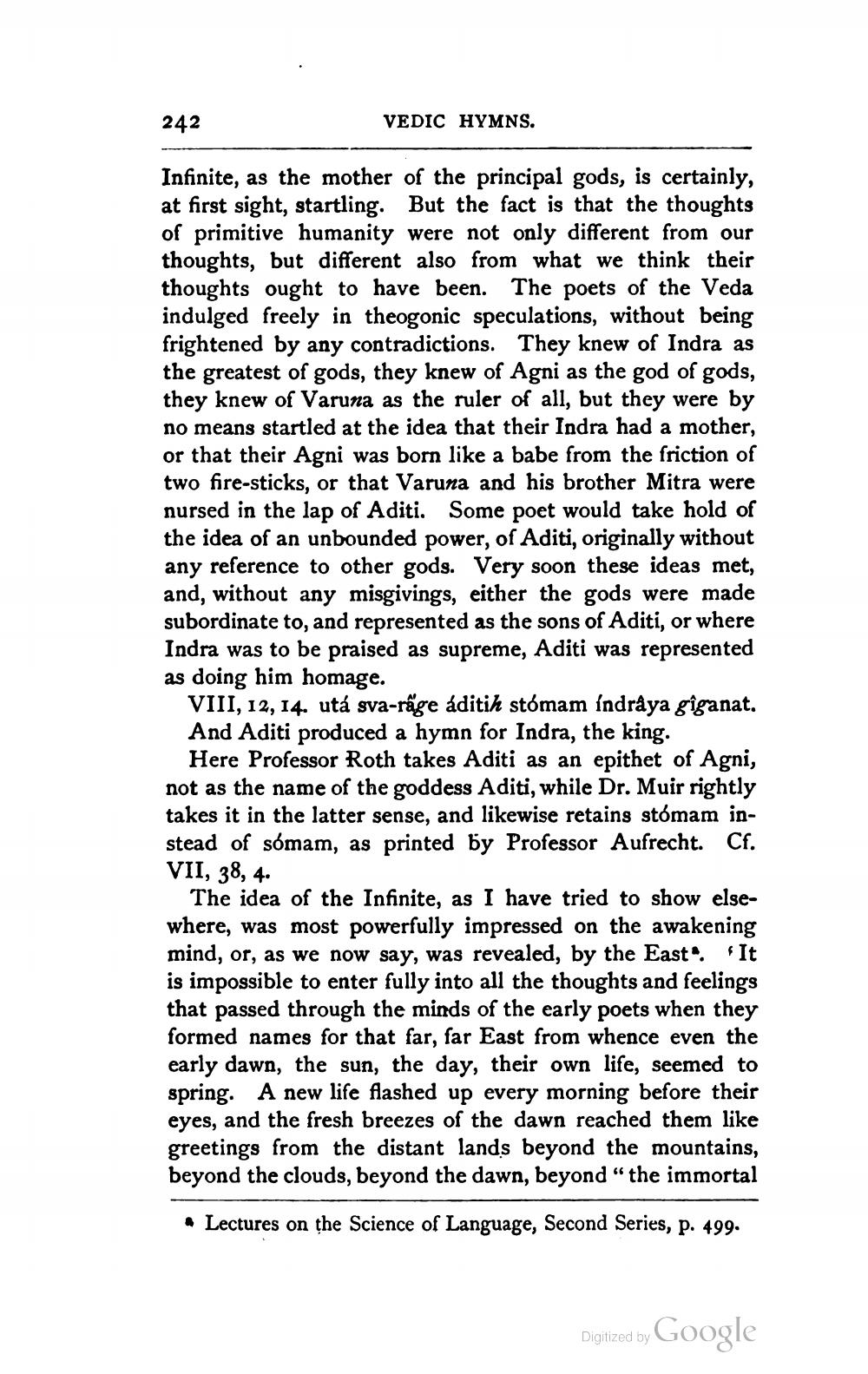________________
242
VEDIC HYMNS.
Infinite, as the mother of the principal gods, is certainly, at first sight, startling. But the fact is that the thoughts of primitive humanity were not only different from our thoughts, but different also from what we think their thoughts ought to have been. The poets of the Veda indulged freely in theogonic speculations, without being frightened by any contradictions. They knew of Indra as the greatest of gods, they knew of Agni as the god of gods, they knew of Varuna as the ruler of all, but they were by no means startled at the idea that their Indra had a mother, or that their Agni was born like a babe from the friction of two fire-sticks, or that Varuna and his brother Mitra were nursed in the lap of Aditi. Some poet would take hold of the idea of an unbounded power, of Aditi, originally without any reference to other gods. Very soon these ideas met, and, without any misgivings, either the gods were made subordinate to, and represented as the sons of Aditi, or where Indra was to be praised as supreme, Aditi was represented as doing him homage.
VIII, 12, 14. utá sva-râge aditih stómam indraya gîganat, And Aditi produced a hymn for Indra, the king.
Here Professor Roth takes Aditi as an epithet of Agni, not as the name of the goddess Aditi, while Dr. Muir rightly takes it in the latter sense, and likewise retains stómam instead of sómam, as printed by Professor Aufrecht. Cf.
VII, 38, 4.
The idea of the Infinite, as I have tried to show elsewhere, was most powerfully impressed on the awakening mind, or, as we now say, was revealed, by the East. It is impossible to enter fully into all the thoughts and feelings that passed through the minds of the early poets when they formed names for that far, far East from whence even the early dawn, the sun, the day, their own life, seemed to spring. A new life flashed up every morning before their eyes, and the fresh breezes of the dawn reached them like greetings from the distant lands beyond the mountains, beyond the clouds, beyond the dawn, beyond the immortal
• Lectures on the Science of Language, Second Series, p. 499.
Digitized by
Digized by Google




